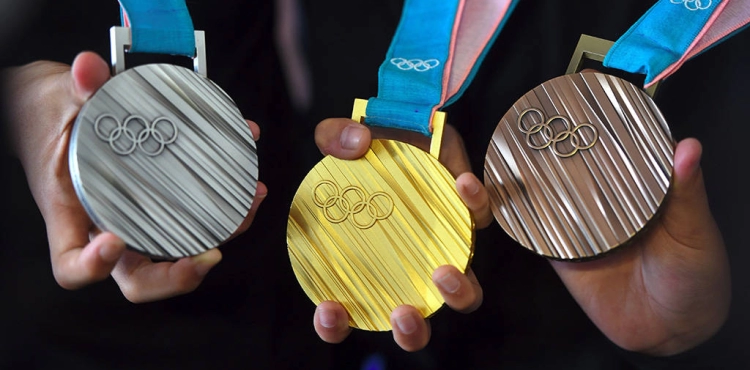Tokyo _ Agencies
Japan has come a long way in its campaign launched more than a year ago on the manufacture of the "Tokyo 2020 " E-waste Olympics medals.
Electronic waste, batteries, wires, etc., are the fastest-growing tributary of household waste in the world, and electronic waste is heavily labelled as a neglected mine that hides gold and other precious metals waiting to be discovered.
In April 2017, the organizing committee for the Tokyo Olympics launched a campaign that called on citizens to donate their old mobile devices to the Olympics, according to the BBC/BBC.
To date, the organizers have obtained 16.5 kilograms of gold, more than half the amount of gold required for the medals, estimated at 30.3 kilograms of gold, as well as 1800 kilograms of silver "about 43.9% of the required silver", as well as the total required bronze amount of 2,700 kilograms.
"Masa Takaya," spokesman for the Tokyo Olympics 2020, said the project provides a glimmer of hope for e-waste disposal efforts, as the addiction of many electronics threatens to flood their communities with devices that are no longer useful, while United Nations data show world production in 2016 Estimated at 44.7 million tonnes of e-waste, which is a growing figure of about 3 and 4% per annum.
To see how big the waste is, imagine you carry trucks weighing 40 tons, of 18-wheeled wheels, stretching around 1 million to 230 thousand trucks, along a road from two lanes from Singapore east to Paris West. However, the waste is expected to be over 52 million tons by 2021.
Maria Holchko, assistant professor at the University of British Columbia, said that the value of one tonne of e-waste is sometimes approximately 100 times the ore of mines.
Rudiger Kerr, an e-waste expert at the United Nations University and a participant in the UN report, said Japan is one of those countries that lacks natural resources and has no other way of benefiting from the valuable and scarce resources that are not derived from waste.












